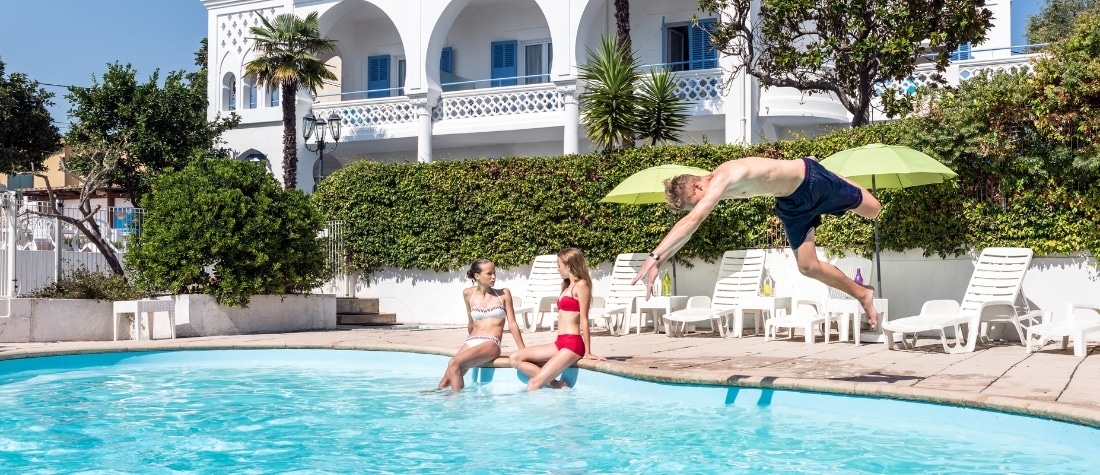Translation is an industry that has existed since mankind could communicate. What makes translation such a historically important trade? In the past, it played a key role in spreading religious doctrine and philosophy throughout different cultures. It also took astronomy and science around the world, saving lives with new medicine and clinical techniques being shared across the globe. It is also essential in the world of business, breaking down borders and language barriers so people can trade and see their companies flourish. Let’s take you on a trip back in time and introduce you to some of history’s best-known translators… some of them may surprise you!
Translation History with Four Translators: Cicero (106-43 BC)
Marcus Tullius Cicero was a Roman statesman, scholar, lawyer and acclaimed orator. He was also a writer who was so productive that Cicero was behind three quarters of the Latin literature known to have been written in his lifetime. As part of his work as a writer, he was behind a significant body of translations from Greek to Latin, introducing Greek philosophical and theoretical concepts to Roman audiences. A great many of Cicero’s translations of Greek concepts, such as “assent”, “comprehension” and “quality”, have not only become common terms in their philosophical field but used in everyday language throughout Europe.
Our favourite quote by Cicero: “Neither can embellishments of language be found without arrangement and expression of thoughts, nor can thoughts be made to shine without the light of language.”
Translation History with Four Translators: Geoffrey Chaucer (1340s-1400)
If you studied English literature at school in the UK, then you’re bound to have run into Chaucer and his Canterbury Tales for GCSE or A-Levels. But you may not know that as well as being an author, poet and the “Father of English Literature”, Chaucer was also a translator. He brought literary classics originally in Latin, French and Italian to English audiences, inspiring his fellow authors in turn. One example of an important work that Chaucer translated for the masses is Le Roman de la Rose, arguably the most influential piece of literature written in 13th century French and an example of courtly love that has inspired writers through the ages.
Fun fact about Chaucer: He wrote in Middle English which was heavily influenced by French and Germanic Anglo-Saxon… Chaucer’s original text actually needs a modern-day translation it’s so “foreign” to native speakers today!
Translation History with Four Translators: Jean-François Champollion (1790-1832)
Now here’s someone you may not have heard of but he should be on your language radar: this is the man who cracked the Rosetta Stone! The Frenchman studied Oriental languages such as Persian, Arabic and Sanskrit but Champollion’s real love was Ancient Egypt. He lost his job at the Faculty of Letters in Grenoble when he was just 25 and threw himself into studying texts brought to him from Egypt. His work on the hieroglyphic, figurative, ideographic and alphabetic systems of Ancient Egypt caused a sensation and provided the keys to finally translate and understand hieroglyphics.
Find out more: Next time you’re visiting South West France, make a beeline for Champollion’s hometown of Figeac and visit his namesake museum, The Writings of the World.
Translation History with Four Translators: Gregory Rabassa (1922-2016)
If you’ve read any post-WWII books by Spanish or Portuguese-speaking authors, then there’s a very good chance that you’ve read Gregory Rabassa’s translation of them. The American translator produced over 30 literary translations and is largely responsible for bringing contemporary Latin American fiction to English-speaking readers. He studied Romance languages at university, was a cryptographer during WWII (another connection between decoding information and translation!) and earned degrees in Spanish and Portuguese from Columbia University. He famously kept Gabriel García Márquez waiting 3 years for his translation of 100 Years of Solitude which the Colombian master declared better than the original!
Translation à la Rabassa: Rabassa sometimes translated the books he was commissioned without reading them. He is quoted as saying, “In my mind, the book I’m translating exists in English even before it’s translated. I just have to pull it out.”
Whatever ideas, concepts, theories or stories you want to share with the world, Active Languages and our professional human translators should be your first port of call so you can make your name in history too!
Contact Active Languages for all your translation, and contact us now for a free quote.
Also contact Active Languages for our range of Study Abroad options: French language courses in France, Summer camps for Teens in England and in France, the Paris Saint-Germain Academy England football camps in the UK.
Contact Active Languages today: Contact us





